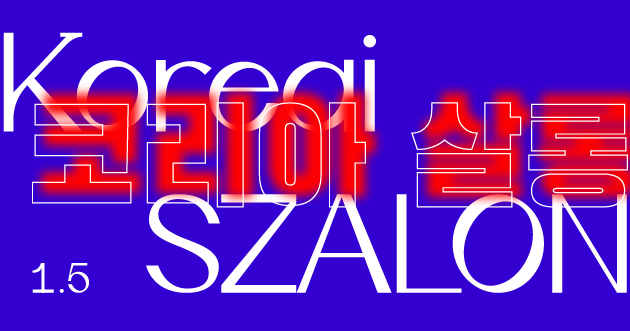Koreai szalon 1.5 - Miben áll a koreaiság?

Időpont: 2023. november 27. 18:00-19:30
Helyszín: CEU, auditórium (1051 Budapest, Nádor u. 15.)
Az esemény ingyenes, azonban előzetes regisztráció szükséges.
Az előadás nyelve angol, magyar nyelvű tolmácsolást biztosítunk.
A Koreai Kulturális Központ kultúraelméleti előadássorozata az itthon is egyre népszerűbb koreai kulturális jelenségek mögé néz közérthető, kritikus és élményszerű módon. A Koreai szalon témáit meghívott szakértők segítségével igyekszünk megérteni. A kezdeményezés további célja, hogy a koreai kultúra iránt érdeklődőknek közösségi élményt is nyújtson.
A sorozat idei utolsó előadása abból a kérdésből indul ki, mi az az erő, ami a globális kultúra élére állította Dél-Koreát. A téma ezúttal az ország csupán néhány évtized alatti gazdasági, politikai, társadalmi és kulturális átalakulása. A súlyos szegénységtől a csúcstechnológiáig, a tekintélyelvűségtől a demokráciáig, a konfucianizmustól a liberális értékekig és az egzotikus kultúrától a trendszetter koreai hullámig, Dél-Korea sok tekintetben megváltozott, ami egyedülálló jelenséggé teszi a koreai fejlődést.
A szalon korábbi eseményein más-más aspektusból, de szintén a koreai jelenséget jártuk körül. Foglalkoztunk a koreai népdal, az arirang kultúrtörténeti vonatkozásaival, a világhódító kpop zeneipari titkaival és a konfucianizmus és a konzumerizmus találkozásának hatásával is. Az idei utolsó előadás a szalon elején feltett alapvető kérdésre, vagyis, hogy miben áll a koreaiság, új oldalról igyekszik izgalmas válaszokkal szolgálni a hazai közönségnek.
Előadónk a nemzetközi kapcsolatok professzora, Ramon Pacheco Pardo, aki a King’s College London Európai és Nemzetközi Tanulmányok tanszékének vezetője, valamint a Brussels School of Governance KF-VUB Korea elnöke. A 2022-es Shrimp to Whale: South Korea from the Forgotten War to K-Pop (‘Garnélából bálna: Dél-Korea az elfeledett háborútól a k-pop-ig’) c. könyv szerzője és a 2023-as Korea: A New History of South and North (‘Korea: Dél és Észak új története’) c. könyv társszerzője.
Korean Salon 1.5 :: Koreaness
Date and Time: 27 November 2023, 6-8:30 p.m.
Venue: CEU Auditorium (1051 Budapest, Nádor u. 15.)
Entrance is free of charge, registration in advance is required.
Language of the event: English (Hungarian interpretation will be provided)
The Korean Cultural Center in Hungary launched its first series of lectures on cultural theory this April, which looks behind the increasingly popular Korean cultural phenomena in an accessible, critical and experiential way. We will try to understand the topics of the Korean Salon with the help of invited experts. The initiative also aims to provide a community experience for those interested in Korean culture.
The theme of the lecture is the phenomenal economic, political, social and cultural transformation of the country in a period of only a few decades. From dire poverty to cutting edge technology, authoritarianism to a vibrant democracy, Confucianism to liberal values and an unknown culture to the trend-setting Korean Wave, South Korea has changed in many ways that makes ‘Koreaness’ a unique phenomenon.
In previous Salon events, we have also explored the Korean phenomenon from different angles. We have looked at the cultural history of the Korean folk song arirang, the musical secrets of the world-conquering K-pop, and the impact of the meeting of Confucianism and consumerism. This year's closing performance will attempt to provide a new and exciting answer to the fundamental question posed at the beginning of the Salon: What is Koreaness?
The speaker is Ramon Pacheco Pardo, who is Professor of International Relations at King’s College London and the KF-VUB Korea Chair at the Brussels School of Governance of Vrije Universiteit Brussel. He is also King's Regional Envoy for East and South East Asia, helping to shape and implement the university's strategy for the region. He is the writer of the book ‘Shrimp to Whale: South Korea from the Forgotten War to K-Pop’ published in 2022, and co-author of the book titled ‘Korea: A New History of South and North’ published in 2023.
- melléklet
